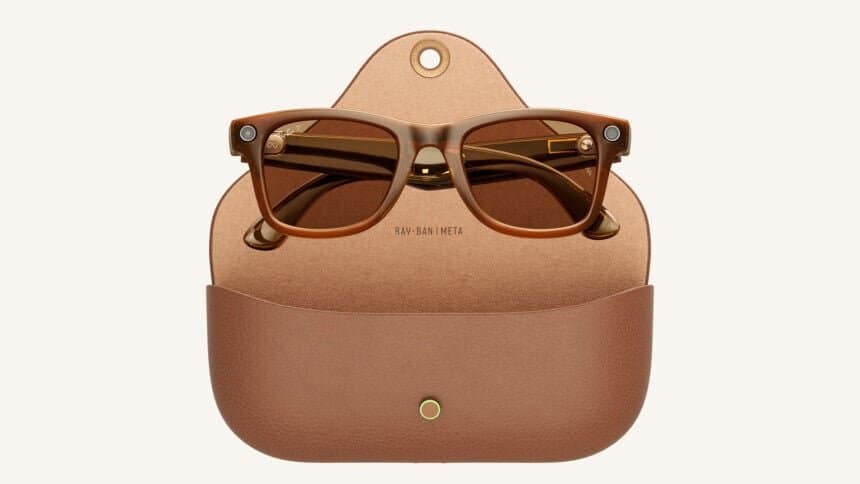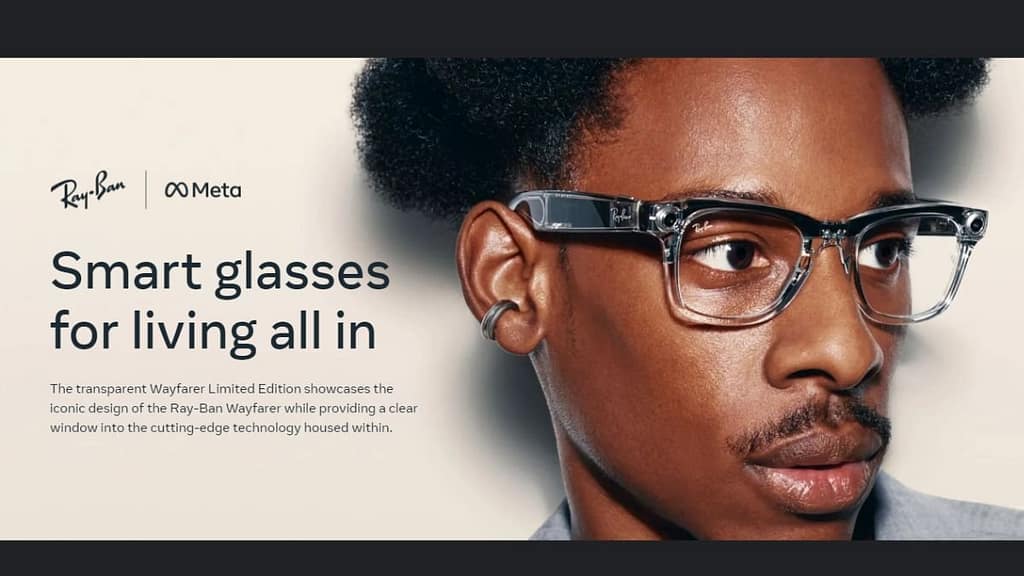The idea of having a computer on my head terrifies me, but Apple’s next big product should be smart glasses.
I completely see why some people think wearable headgear is a horrible concept, whether it’s the Meta Quest, Apple Vision Pro, or something more conventional like the Meta RayBan Smart Glasses.
The first is that wearing an Apple Vision Pro does make you appear… crazy, and the second is that the technology is still very much in its infancy.
The main issue with this cutting-edge wearable technology, in my opinion, is that it diminishes a person’s humanity. And since our phones are already rather good at doing that, I’m not sure if we need any more devices that incite antisocial behavior.
But now for the story’s “but”…
You see, I gave it some thinking, and since I wear prescription glasses every single day, I guess I can understand (wink) why a pair of less “crazy” Meta Ray-Bans may be simple to adjust to.
Naturally, non-sunglasses will be a superfluous fashion accessory for people who don’t use lenses or need them. I therefore completely understand why such individuals might find the Meta RayBans unique in a variety of ways.
The “smart” component, however, should shorten the honeymoon period (getting used to them) for someone who already uses prescription glasses on a daily basis, assuming it exists at all.
The most distinctive “feature” of the Meta Ray-Ban glasses that nobody is discussing is how different smart glasses are from other wearable technology.

Furthermore, I think we should emphasize that, at least for people with prescription lenses or, you know, the oddballs who wear sunglasses indoors, Smart Glasses like the ones made by Meta has the potential to be the only smart product that serves no purpose at all. In this sense, they will already be your “glasses.”
And I think this special “feature” is really important because it implies you will always be using the Meta ReyBans, even if you forget to charge them or just prefer to take a break from their intelligent capabilities. Once more, this is completely original for a smart wearable.
Like your earphones, phone, tablet, and laptop, your smart watch is worthless when it dies. However, this isn’t the case with smart glasses, which can be a prescription pair of glasses you wear anyhow or a fashion accessory.
As an added benefit, you would be much less likely to forget your smart glasses than your phone, camera, or headphones because of their genuine multifunctionality. Maybe because I’ll trip over them on the way out, I wouldn’t leave the home without my glasses.
However, they integrate the functions of a phone, a camera, and headphones into one device—the Meta RayBans, at least—which is quite unusual and somewhat astounding considering how ordinary they appear.
Although the present Meta Ray-Bans aren’t flawless, I’m eager to see where this product will go. However, I can’t say the same with the Apple Vision Pro.

Although I haven’t had the opportunity to test the Meta Ray-Bans, I’m sure Mark Zuckerberg and the company are headed in the correct direction with this product based on my secondary research.
First of all, because the concept of “glasses” isn’t new, Meta appears to have done a fantastic job of making the Meta Ray-Bans feel and look almost completely normal. This is something you can’t claim for other wearable headgear. Therefore, until they are combined into a single device, a pair of smart glasses will always appear normal in comparison to an AR/VR headset.
I’m sure they’re not heavier than some big designer frames you see your favorite celebrity wear, but they weigh about 50g, which is definitely heavier than a prescription glasses frame I’d want to wear (15–30g).
Naturally, the material, the thinness of the lenses, and your prescription (if you have one) will determine how much heavier they become. That’s that.
Indeed, the current iteration of the Meta Ray-Bans appears to have a number of additional drawbacks, such as low battery life, a 3-minute video recording limit, and strange photo and video framing because the camera is located in the far left corner of the spectacles rather than the middle.
Nevertheless, I don’t believe the drawbacks are sufficient to divert my attention from the special usability aspects that a product like the Meta Ray-Bans offers.
- Consider the possible advantages of always carrying a good-quality camera: you won’t miss any significant moments that you would like to record, and you won’t have to take out your phone or camera and then get drawn into social media.
- I don’t know about you, but the prospect of having access to something like Chat GPT or Visual Intelligence just by looking at something sounds incredibly exciting. With the most recent significant update to the Meta Ray-Bans, Meta gave the glasses Chat GPT-like capabilities, allowing you to look at something and ask the AI assistant to provide you with pertinent information about it.
With Apple Vision Pro, the company may be wasting its time. As soon as possible, Tim Cook and the company should create a rival to the Meta Ray-Ban (including Google and Samsung!).

Ultimately, the concept of wearable headgear continues to frighten me and cause me to doubt my belief in people.
However, the fact that I now use and wear prescription lenses and glasses makes the concept of smart glasses much more palatable.
To return to the story’s title, I would even venture to add that I believe Apple may be wasting its time with the Apple Vision Pro, which is obviously over its buzz phase. I have a feeling that the outrageous price isn’t the cause of this.
Speaking of cost, it would be impossible to overlook the fact that the Meta Ray-Bans are between $300 and $400, which is, in my opinion, reasonable for a pair of (smart) glasses. My new prescription glasses came with a new frame, which cost about $150, but the frame itself was free.
The key thing is that, in my opinion, Meta has already completed the pilot study for Apple (as well as other major corporations), which is a huge edge in the IT industry. To put it another way, we already know that the Meta Ray-Bans are far more likely to be purchased and used than the Quest or Apple Vision Pro.
Naturally, I wonder. What is Apple holding out for? Conversely, what is Google holding out for? Though it was well ahead of its time, Google Glass wasn’t an awful idea. And let’s face it, people have far more faith in Apple and Google to provide “safe” products that safeguard their privacy than they do in Meta.